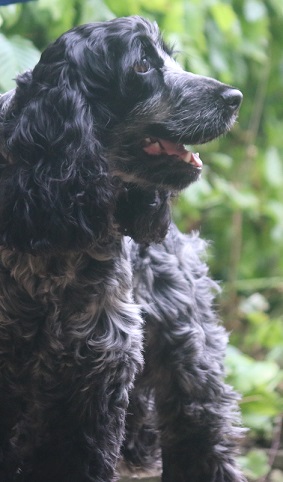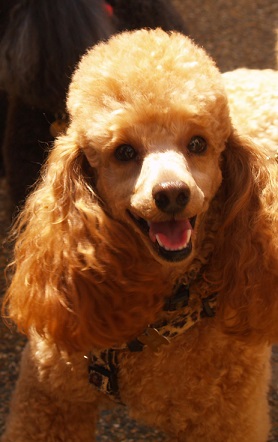Sneak Peek
This is a self Paced 20-hour course to help you understand and Become an Expert on Caring for Dogs!
The Dog Owners Short Course is a complete guide for people who own dogs or those who are considering owning a dog. It covers all of the essential factors that one would need to consider when caring for and owning a dog.
In every component of life, dogs have accompanied humans. In war, in sport, in hunting, in scientific discoveries, in work, in wealth and in art, dogs have been cooperating with humans. Nowadays, the majority of dogs over the world are pets living in homes as much-loved family members. They offer companionship, love and loyalty. The dog remains deeply a part of human life and our best friend.
This 20-hour short course covers six lessons that help you understand what essential considerations you need to think about when you own a dog.
The course covers the following topics:
- Dogs and humans
- Basic dog care
- Dog breeds
- Selecting the right dog for you
- Biology of dogs
- Basic health
- Dog psychology
- Grooming
- Working with dogs
At the end of each lesson, you will be given a short interactive test to undertake, which will provide an indication of how your learning is progressing. Upon completing the very last lesson, you will be offered a more thorough automated test or examination. This final assessment can be undertaken at any time of day or night; and any day of the week. If you achieve an overall pass, you will be able to obtain a "Certificate of Completion" with your name and completion date on it.
Our 20 hour courses are self paced and will help you understand a topic in a short amount of time.

COURSE CONTENT - what do you learn?
LESSON 1: DOGS AND HUMANS
- History
- Dog Breeds
- Pure Breeds or Crossbreeds
- A Selection of Common Breeds
- Basic Dog Care
- The Right Dog for You
- Creating a Healthy Home Environment for a Dog
- Dogs and Fire Emergencies – How prepared are You?
LESSON 2: BIOLOGY OF DOGS
- Physiological Characteristics
- Reproductive System
LESSON 3: BASIC HEALTH
- Signs of a Healthy Dog
- Recognising Poor Health
- Common Internal Parasites
- Common External Parasites
- Common Disease and Illness
- Skin Problems in Dogs
- Notifiable Diseases
- Preventative Health Care & Care for the Sick Dog
- Good Nutrition
- Reproduction and Breeding
- De-sexing
LESSON 4: PSYCHOLOGY
- Understanding the Dog’s Mind
- Evolution and Domestication
- Behavioural Development
- Common Behaviour and Body Language
- Behavioural Problems
- General Training Tips
LESSON 5: GROOMING
- The Need for Grooming
- Techniques
- Grooming Tools
- Pet Clips and Styling
LESSON 6: WORKING IN THE CANINE INDUSTRY
- Health Services
- Breeding
- Grooming
- Training
- Day Care & Exercise
- Long Term Care
- Assistance Dogs
- Canine Therapy
- Professional Dog Handling
- Retail
- Funeral and Memorial Services
WHY STUDY DOG CARE?
If you understand a dog's physical and psychological needs; you will make better choices about the dog you have and how it is treated. Your dog will have a better quality of life and so will you - not to mention that the problems that may arise will be less likely and probably less dramatic.
Uncertainty of Pack Position
It is not cruel to direct or dominate a dog. As we have known for a long time, dogs have a natural instinct towards a pack mentality. Within the wild pack there is a hierarchical order of dominant males down to subordinate dogs (both male and female). It is important to understand this principle fully for effective dog ownership.
Neglect
Withholding necessary water, food, shelter or veterinary treatment are all examples of basic neglect. Unfortunately, a dog owner may neglect their pet due to lack of experience and education, and in some horrific cases dogs are maliciously neglected.
Neglect often leads to physical or psychological problems. Submissive urinating, hand shyness, depression, aggression, separation anxiety and OCD like behaviours may all occur in response to neglect. Depending on how old the dog is and how long the neglect has been happening for, it can take a long time to work through these issues and for the dog to regain its confidence.
Escape
Dogs may escape from their ‘back yard’ for a variety of reasons. They are naturally inquisitive animals and if their enclosure is not properly secure, they will venture off ‘down the block’ to investigate. Ensuring that the dog’s back yard is properly secure is essential to keep the dog safe and healthy.
Entire dogs and bitches are more likely to try and escape to roam around and find a mate. Neutering and spaying dogs can help to reduce this problem from occurring.
Boredom and lack of exercise are probably the biggest reasons that dogs try and actively escape. Increase daily exercise time and try to split exercise periods into shorter sessions that occur more often. Make sure the dog has toys to play with and plenty of human interaction to stimulate its mind.
Unfortunately, constant escaping may be a sign of a psychological problem. A dog who suffers from separation anxiety may actively try to escape to follow its owner when it leaves the house. Phobias and panic disorders may also cause a dog to continually escape. These types of conditions may stem from a traumatic or unpleasant experience that the dog associates with their ‘back yard’. Patience, re-training and lots of love and attention are required to overcome this type of problem.
Attacking People or Other Animals
There are a number of different reasons why a dog might attack a human or another animal. The dog may attack when it feels that it has to protect its own territory or its owner. Normally a dog would bark to do this, but some dogs may take things a step further and chase or physically attack the ‘intruder’. This reaction is more likely to happen with breeds that have been actively produced as guard dogs. If a dog feels threatened in a situation then again, it may attack in self-defense. Lack of proper socialisation may also cause the dog to attack. If they have not been properly socialised with humans and other dogs then they may be more likely to attack. Unfortunately there are some irresponsible dog owners that actively encourage and train their pets to attack humans and other dogs; in this instance the dog does not know any better and cannot be blamed for its actions.
In the main, dog attacks on people are generally unwittingly initiated by the human rather the dog. They may have inadvertently invaded the dogs territory or come between the dog and its food. They may have shown the dog some threatening or aggressive body language and the dog attacks to protect itself.
Any dog, no matter what breed, has the ability to attack humans and other animals. It is important for every dog owner to ensure the dog is well socialised with humans, other dogs and other animals and is kept under proper control when out and about in public.
Physical Damage
It is natural behaviour for a dog to chew things, to dig holes in the garden and to be protective over their own territory. Sometimes, a dog can cause physical damage to objects that we don’t want them to e.g. shoes, furniture, carpets, doors and windows. This destructive behaviour can be caused by a number of different reasons. The dog may simply be bored and not receiving enough exercise, which causes it to destroy things. If the destructive behaviour occurs when the dog is left on his own in the house it may be due to a separation anxiety problem.
If the behaviour tends to occur when the owner is present, then the dog may be doing it to gain attention.
Illness
It is important that a pet dog is fed appropriately, is given the opportunity for adequate exercise and receives love and attention in its home environment. This will help to keep the dog physically and mentally healthy. There are a number of routine health care tasks that an owner should carry out to help prevent illness and disease in their pet. Dogs should be regularly de-wormed with an appropriate anthelmintic to reduce and prevent parasitic infection. They should also be routinely vaccinated against the most common canine diseases. It is common for the vet who administers routine vaccinations to carry out an annual health check at the same time. Attention to the dogs teeth and gums is also important. Regular brushing and the addition of bones or treats specifically designed to help clean the teeth can be added to the diet to combat tartar and decay.
An ideal learning experience for anyone owning a dog!
- 20-hour, self-paced course
- Fully online
- Optional, very practical set tasks throughout
- Help Desk
- Automated self assessment tests
- 'Certificate of Completion' on achieving a 60% pass rate on a final assessment
How does this course work?
You can enrol at any time. Once you have paid for the course, you will be able to start straight away. Study when and where you like. Work through at your own pace.
You can download your study-guide to your smart phone, tablet or laptop to read offline.
There are automated self-assessment tests you can complete at the end of each lesson. You can attempt these as many times as you wish and each time, upon completion, you can see your results. You will need internet access to complete the self assessment tests.
At the end of the course, you are presented with a large assessment which can be attempted online, anywhere, anytime. If you achieve a 60% pass in the exam; you immediately receive a downloadable certificate of completion with your name on it. If you do not achieve a 60% pass rate, you can contact us to re-sit your exam. ( email- admin@acs.edu.au )
Contact us at anytime if you have any issues with the course. admin@acs.edu.au